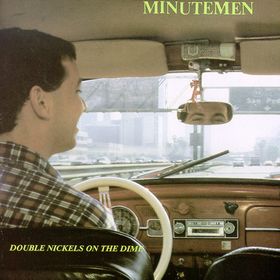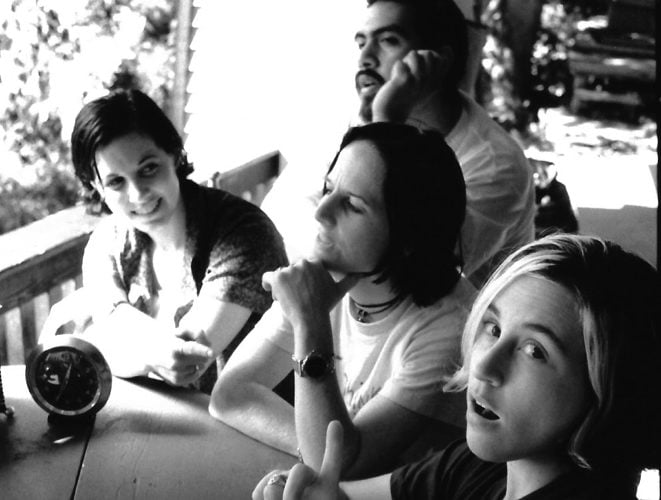
Minutemen
Double Nickels On The Dime (SST)
David Gomez of local punks Longstocking told us about his love for the Minutemen album.
David Gomez: I discovered the Minutemen my sophomore year in high school, a band that most punks I knew told me to avoid because they weren’t “hardcore punk.” The Minutemen were a group of working class dudes from San Pedro, a city just 10 miles away from where I grew up. I found myself in their story and from the moment I dropped the needle on Double Nickels On The Dime and heard the roar of d.boon’s car engine, I was hooked on their sound. The Minutemen didn’t just break the rules of music, they obliterated them. Though their classic rock roots were undeniable, it was punk at its core —an incomparable sound seamlessly synthesized with elements of funk, jazz, folk, and psyche.

(SST)
The band’s inspiration had no bounds—songs waxed poetic about their weirdo friends, railed against racist boss’ and even mused about a leaky shower. They wrote songs under the influence of James Joyce and some straight out of pages of the daily news. Their voice evoked exhaustion — the sound of a people robbed of the best years of their lives, the resentment of an oppressive capitalist system. Their honesty made them relatable. Their compassion for the poor and working class extended to the plight of folks from all over the world who suffered under U.S. imperialist policies, something that I experienced as a child of Mexican immigrants.
Two songs from the Minutemen’s 45 song opus stand out. The song “Corona,” in which guitarist/singer d.boon, bassist Mike Watt and drummer George Hurley come to terms with their Americanism and “the injustice of our greed” during a weekend trip to Mexico. It was the first time I heard a song openly discuss white privilege with sincerity. As a confused teenage Mexican-American, my identity as a Chicano yet to be fully formed, I finally felt seen. During the mid-eighties, the L.A. punk community was predominantly white and not very progressive, especially in their views of race. The Minutemen boldly declared their allyship and moved closer to a sense of wholeness.
The song “History Lesson Part 2” is a sentimental journey encapsulated in the opening line: “Our band could be your life.” The song documents the spark that starts the journey—the experimentation of songwriting where influences define you until one finds their own voice. I thought about my Longstocking bandmate Tamala Pojak as I listened to this song recently. Tamala and I have played in bands together since high school. Although it would seem that we were an odd pairing, we found a kinship in our struggles. First through counterculture and later while discovering our gender and racial identities. With our album, Once Upon A Time Called Now, we stopped being our influences and found our own voice. The last line of “History Lesson Part 2” goes, “But I was E. Bloom and Richard Hell/ Joe Strummer and John Doe/ Me and Mike Watt, playing guitar.” The names of the Minutemen’s influences would change to match ours, but the sentiment remains, with me and Tamala playing guitar.
Longstocking’s “Child Star” single is out now, as is the remastered Once Upon a Time Called Now album.
Advertising disclosure: We may receive compensation for some of the links in our stories. Thank you for supporting LA Weekly and our advertisers.

